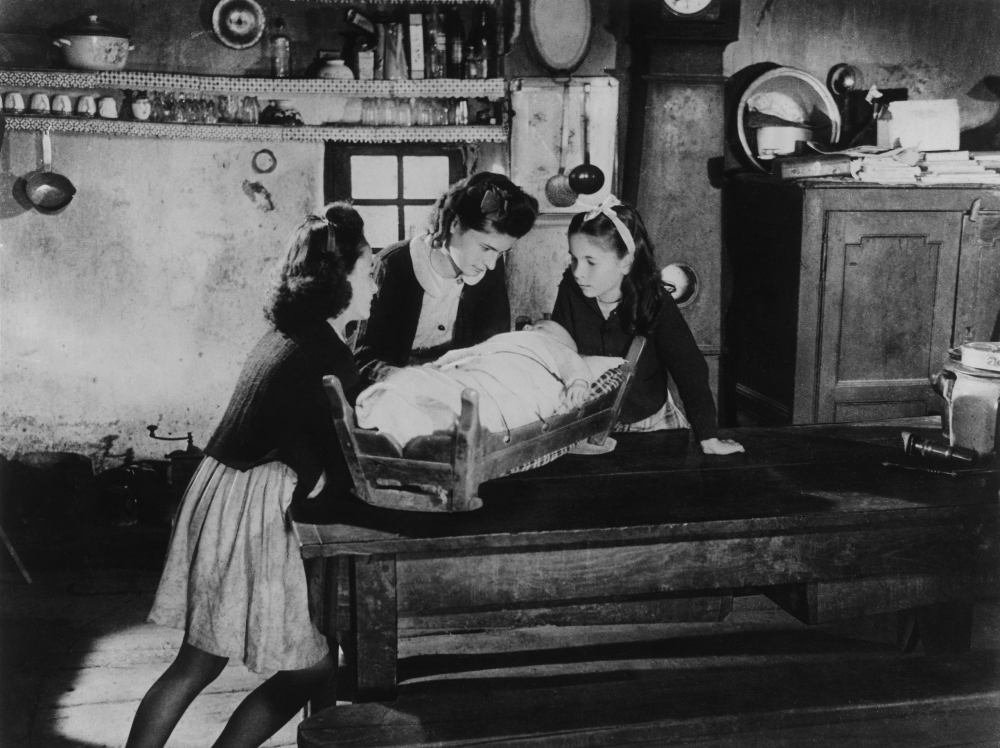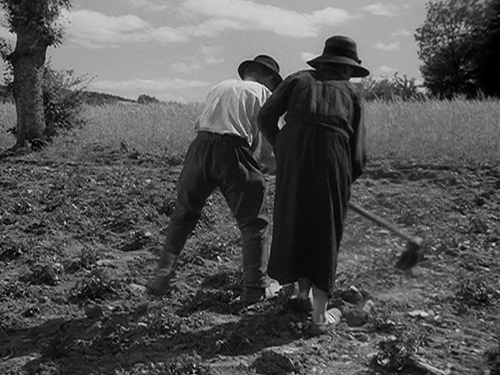On 18 February 2021, Sabzian and Courtisane are hosting the sixth Milestones screening online, presenting Farrebique ou les quatre saisons (1946): the first full-length film by French director. Farrebique depicts the everyday life of a family of French farmers in the postwar period following the rhythm of the different seasons. This unique film evades the classic division between fiction and documentary, allowing the reality of details to thrive with a great sense of poetry. Despite many prizes – Grand Prix de la Critique internationale in Cannes 1946, Grand Prix du Cinéma français 1946, Médaille d’or in Venice 1948 – the film was a forgotten masterpiece, brought back to the big screen thanks to a beautiful restoration by Les documents cinématographiques.
On the occasion of the online screening of Farrebique, Sabzian will be publishing a dossier on 17 February 2021, with a selection of interviews and writings on Farrebique. On the evening of the screening, an introduction to the film by Stoffel Debuysere will be posted on Sabzian. The film will be available on Sabzian, free of charge, worldwide.
The presentation of Farrebique is part of a series of four Milestones screenings hosted online by Sabzian, of which three are in collaboration with Courtisane. The films, texts and introductions will be available on Sabzian’s home page on the day itself.
Georges Rouquier (1909-1989) was a French film director, screenwriter and actor, understood as a successor to the Robert Flaherty tradition of documentary filmmaking, but also, because of the context in which his first feature was released, as a champion of a specifically French neorealism which pointed ahead toward the New Wave a decade later. Starting off with a couple of short films, it is Farrebique ou les quatre saisons (1944), an attentive chronicle of the daily life of a French peasant family, that attests to the filmmaker’s extraordinary talent. This film, oscillating between fiction and documentary, aroused controversy and won him numerous awards. Thirty-eight years later, Rouquier directed Biquefarre (1983), an extension of Farrebique and a disillusioned assessment of the evolution of the rural world. In between, he made several educational and commissioned films, always with lyrical accents, such as Le sel de la terre (1950) on the Camargue, Arthur Honegger (1954), a portrait of the Swiss composer, or Lourdes et ses miracles (1954), an investigation of faith. Rouquier also made fiction films, such as Sang et lumière (1953) and S.O.S. Noronha (1956). For a time, he worked for the Canadian film board. As an actor, he played in Costa-Gavras’ Z (1968) and Yannick Bellon’s L’amour nu (1981).

Milestones is a series of stand-alone screenings, hosted by Sabzian, of film-history milestones, reference works or landmarks, films that focus on aesthetic or political issues and stimulate debate and reflection. In earlier instalments, Sabzian presented Andy Warhol’s Sleep (1964), Jean-Luc Godard’s monumental video work Histoire(s) du cinéma (1988-1998), Robert Kramer’s Milestones (1974), Méditerranée (1963) and L’ordre (1973), two films by Jean-Daniel Pollet and recently Shadi Abdel Salam’s Al-mummia (1969). For each screening, Sabzian publishes texts that contextualize the film.
With the support of the Flemish government



